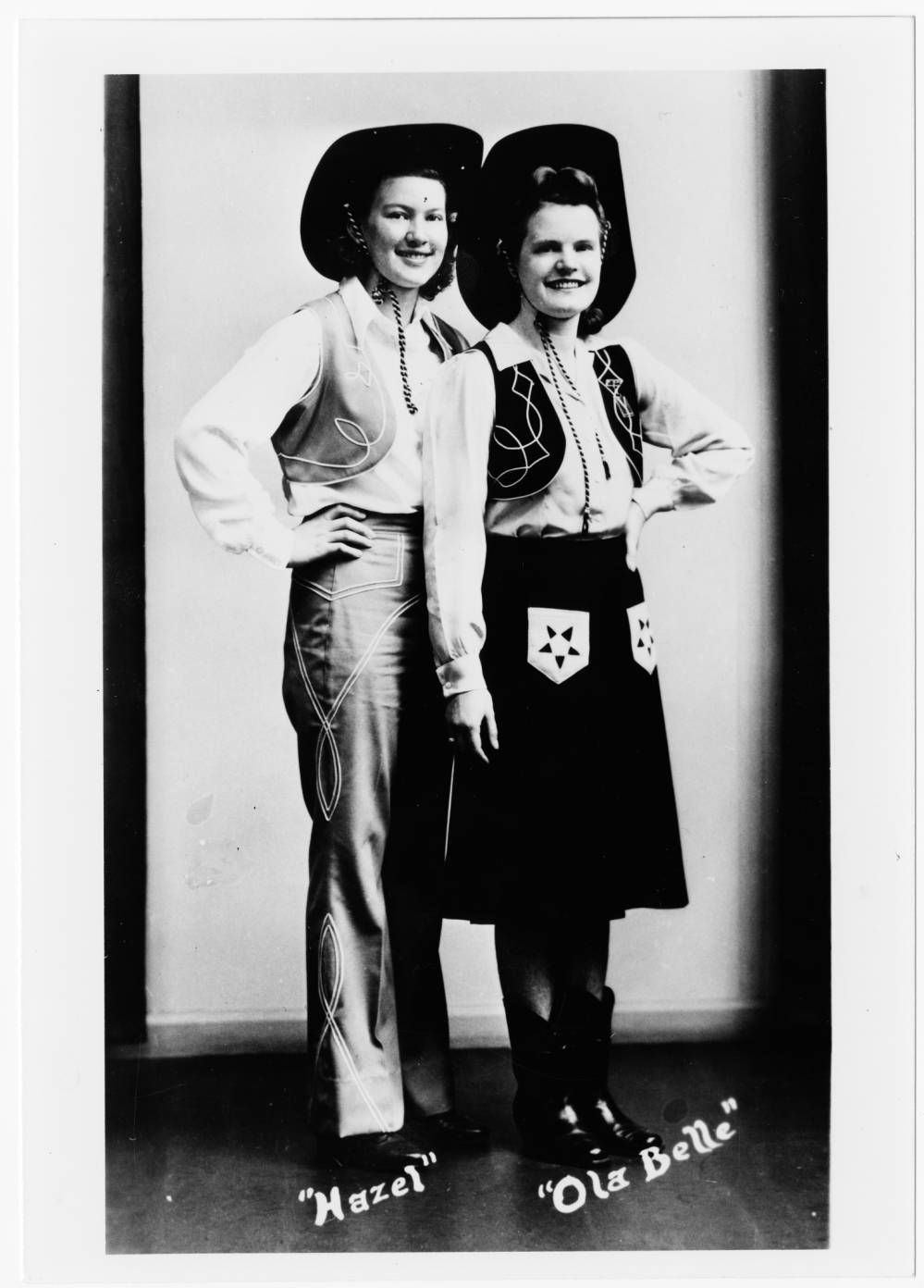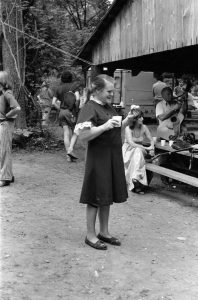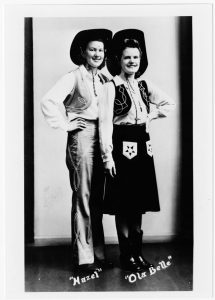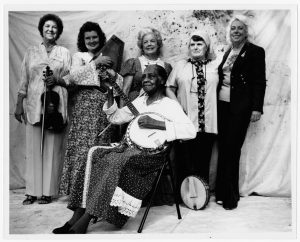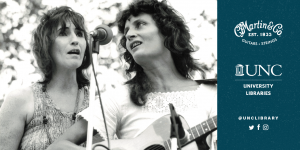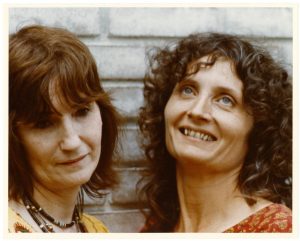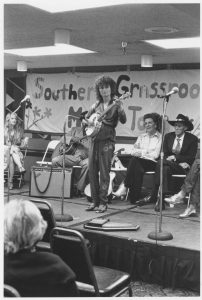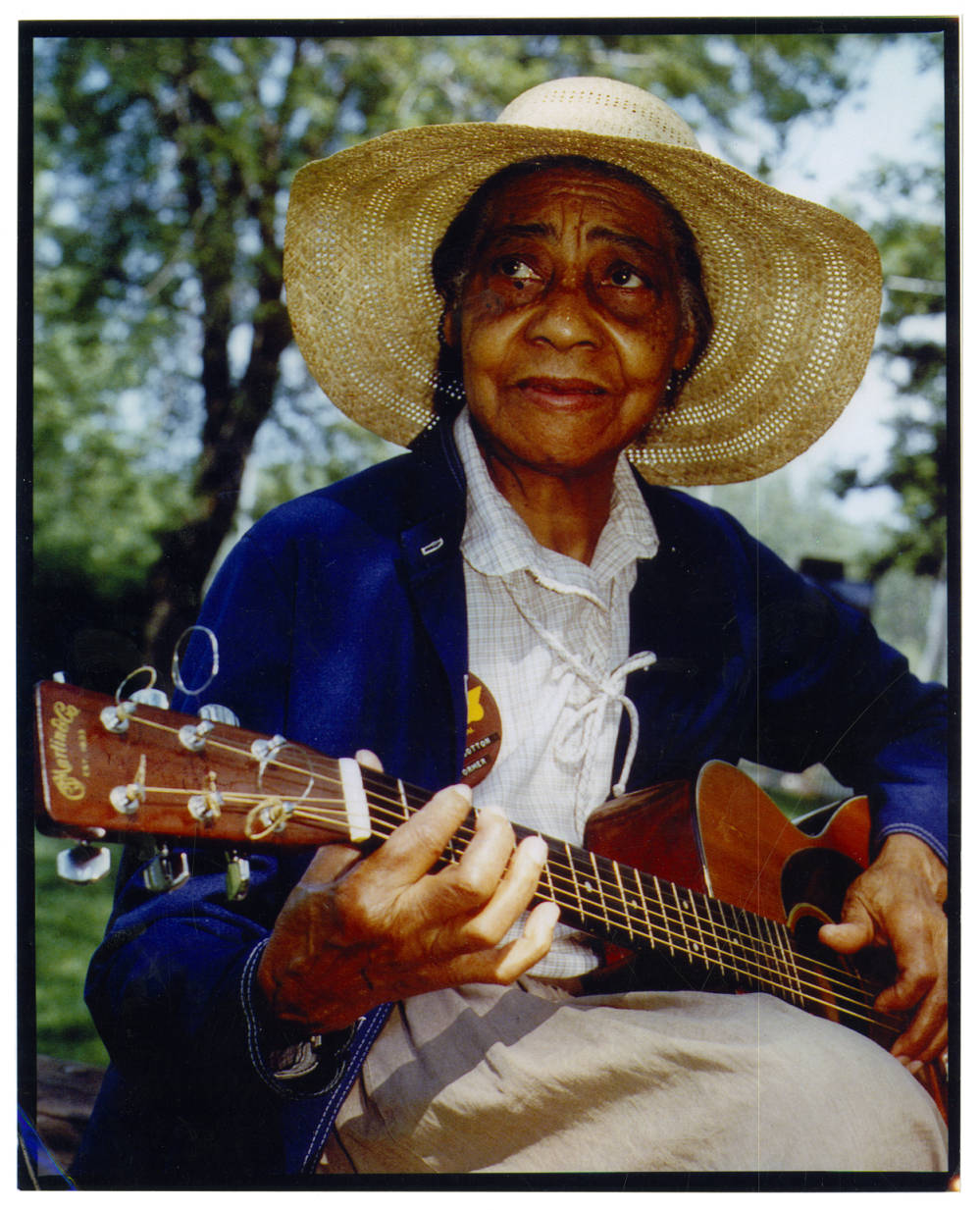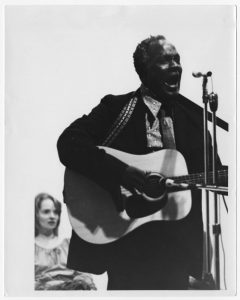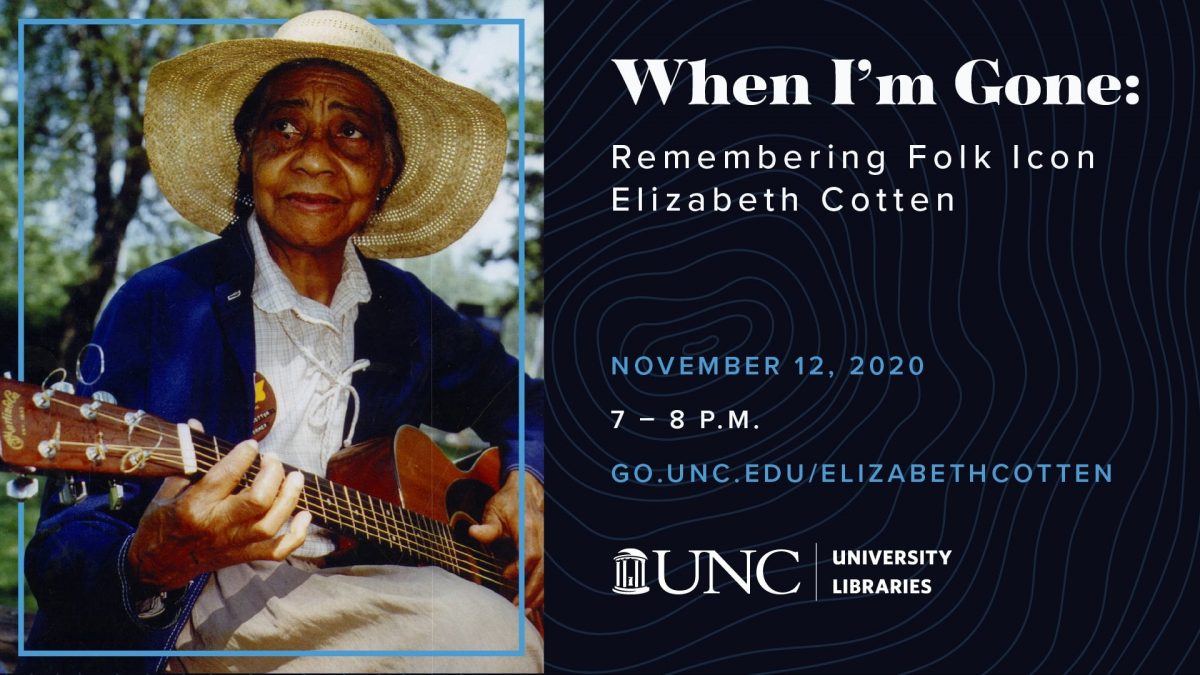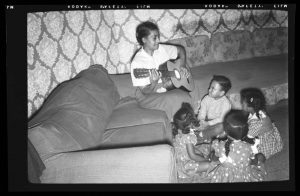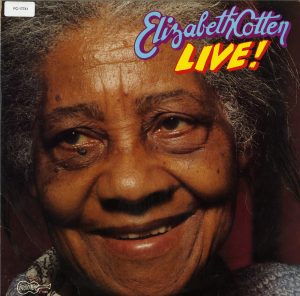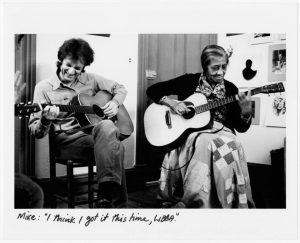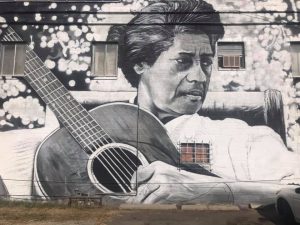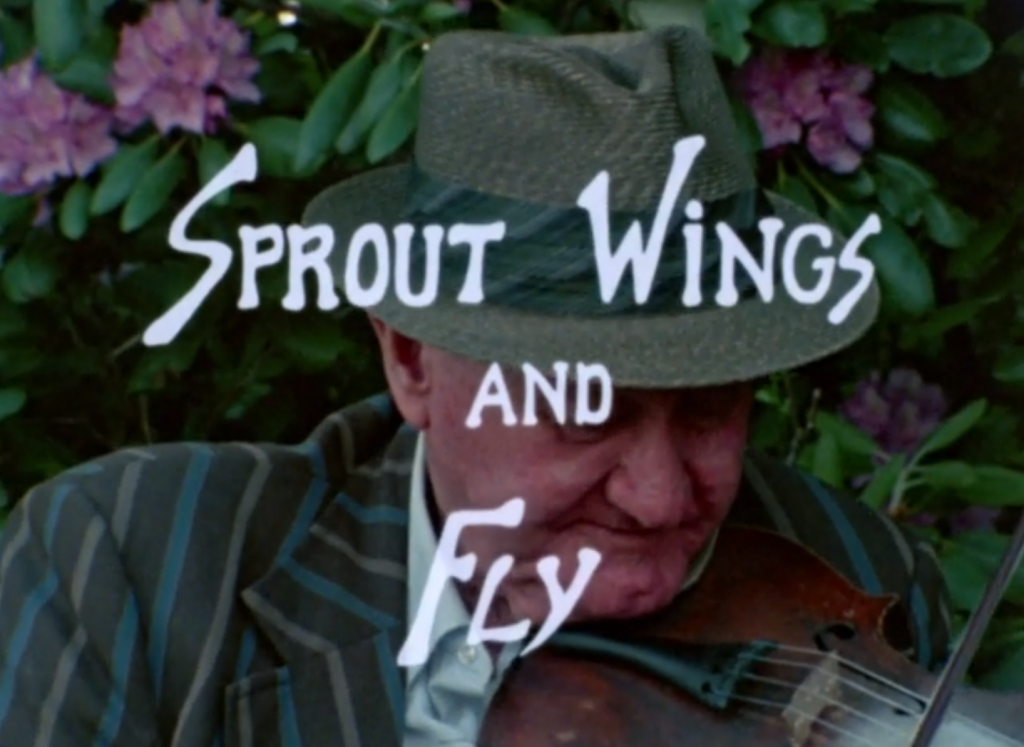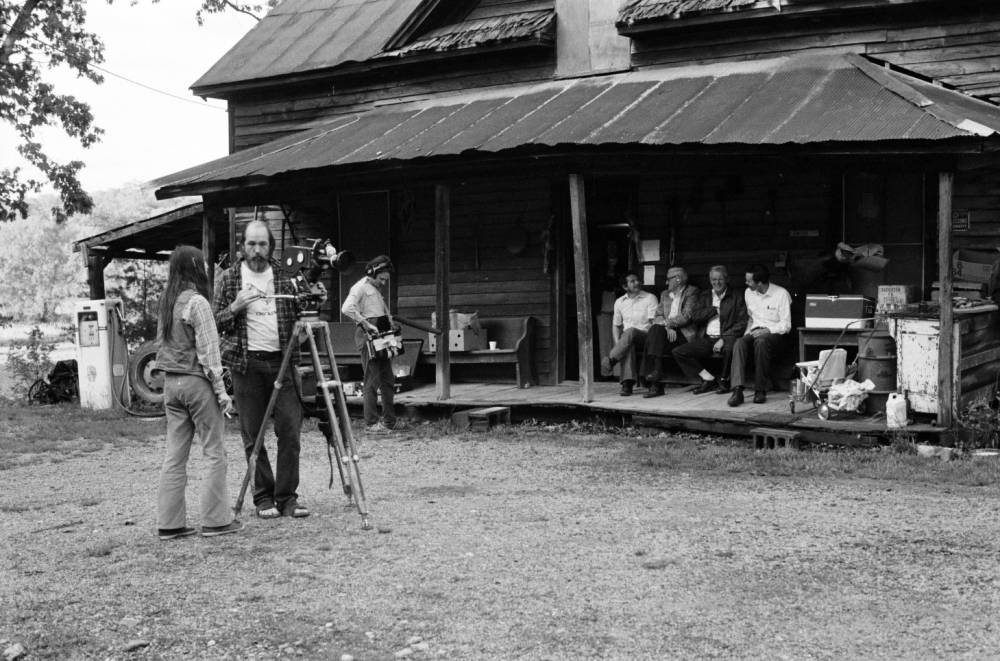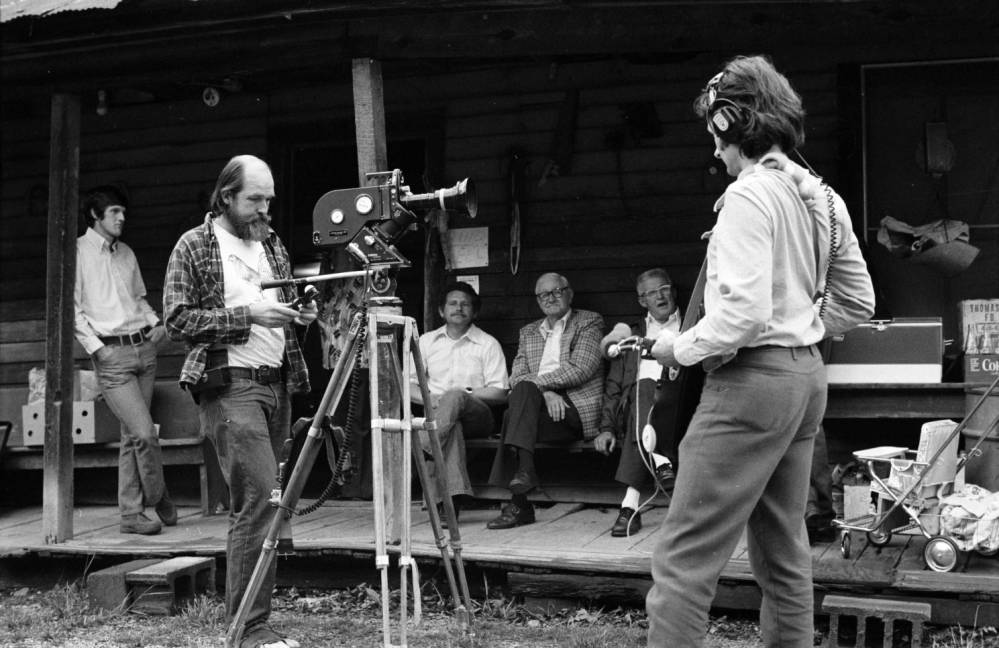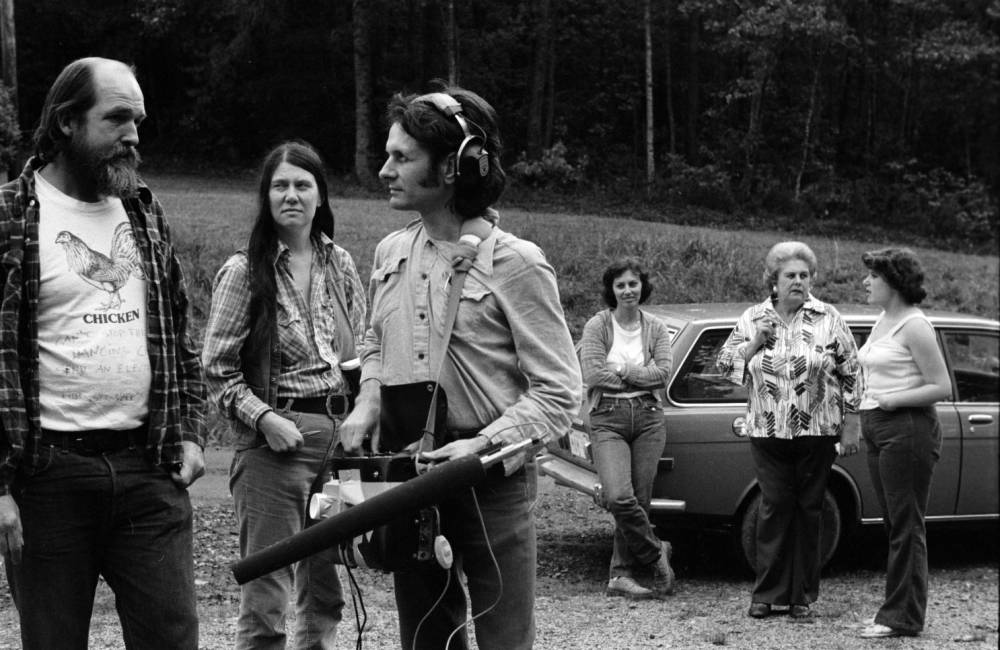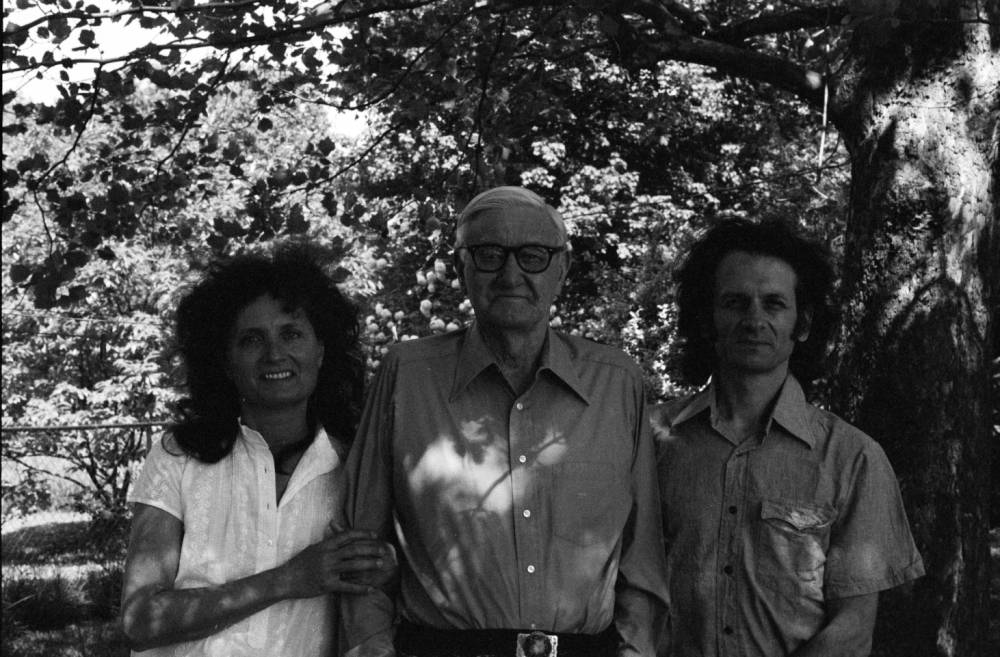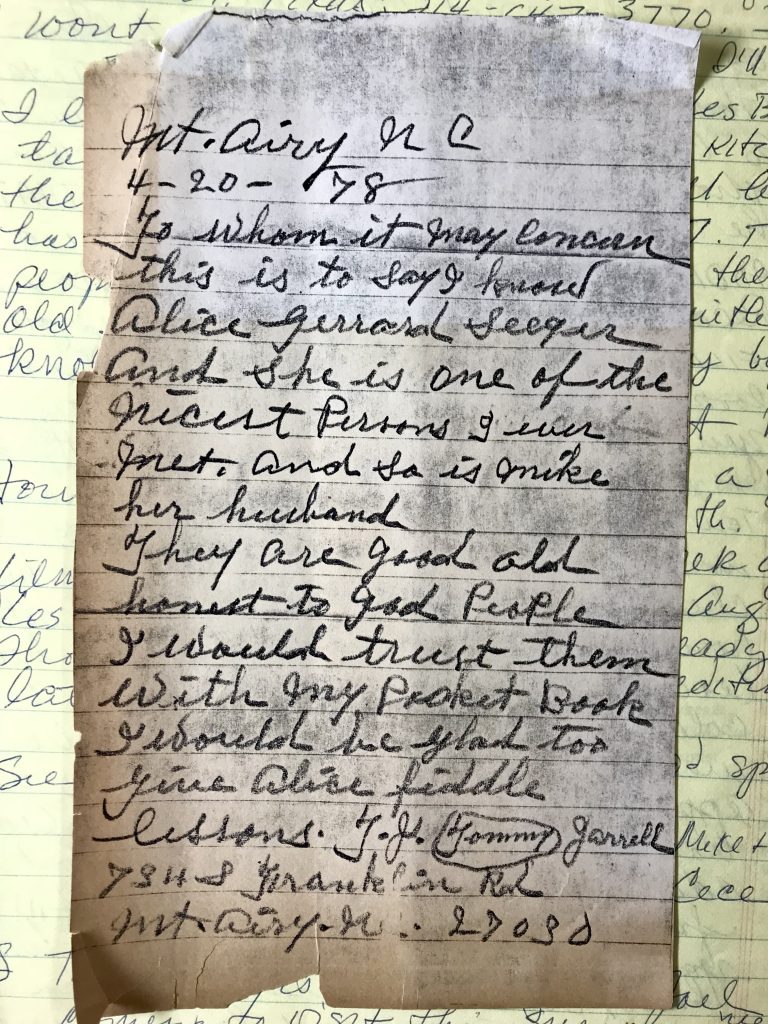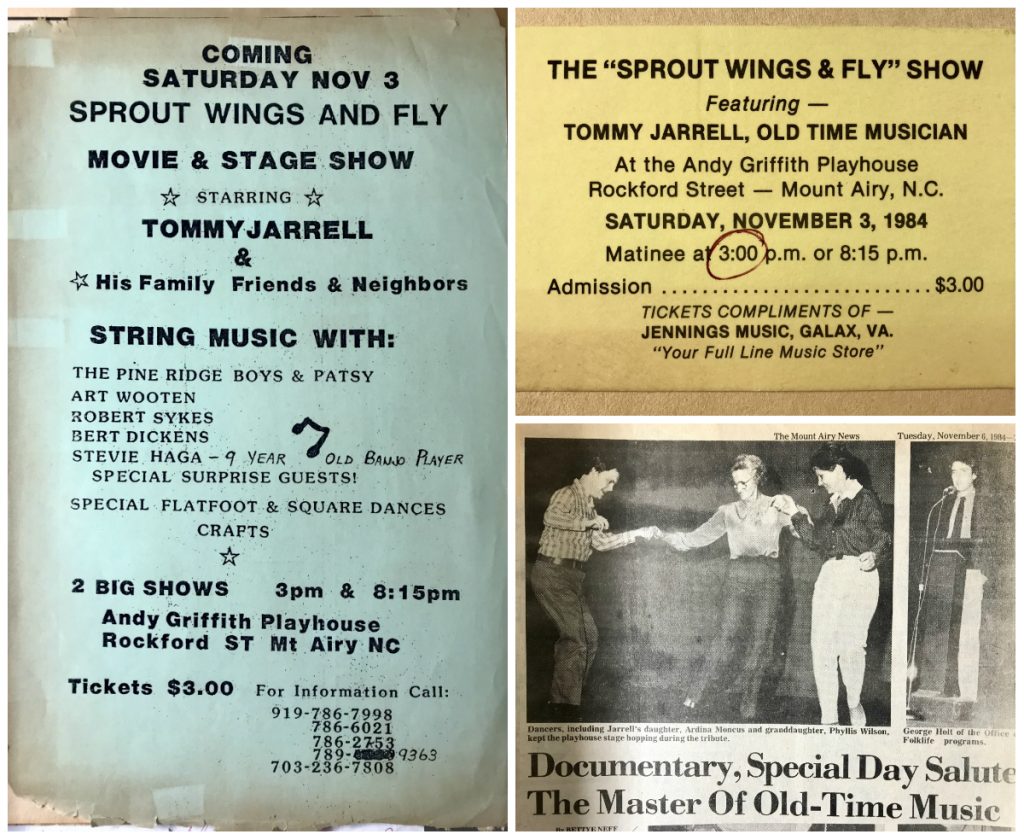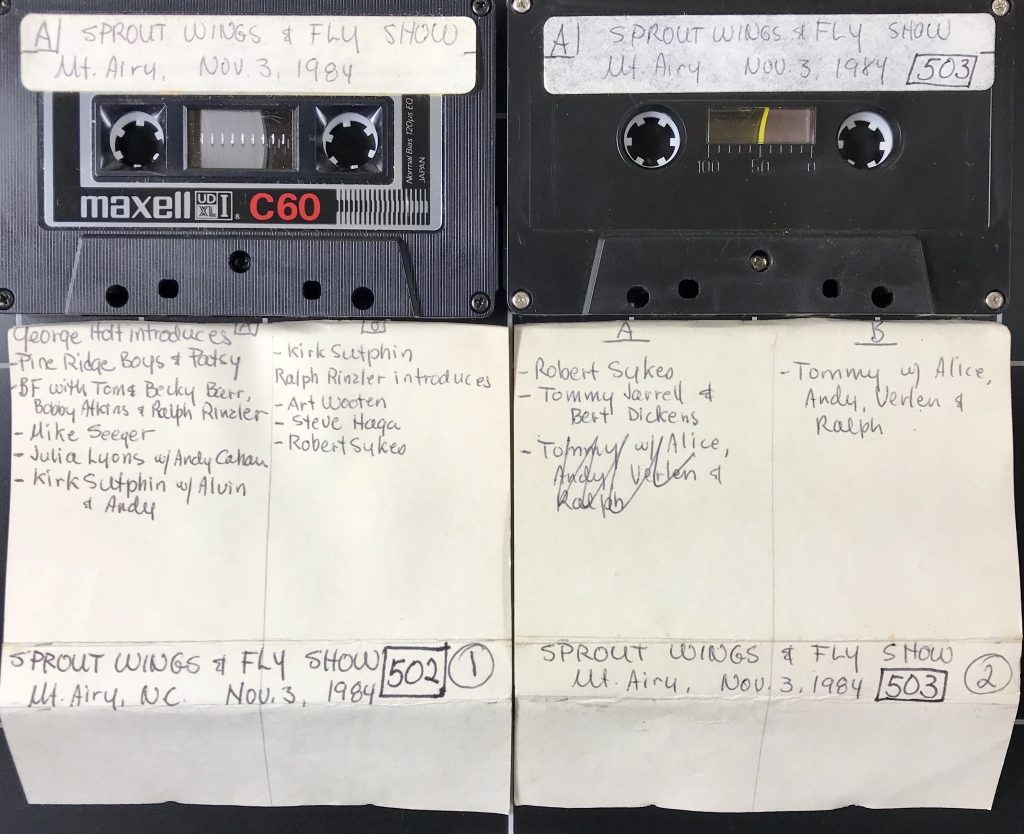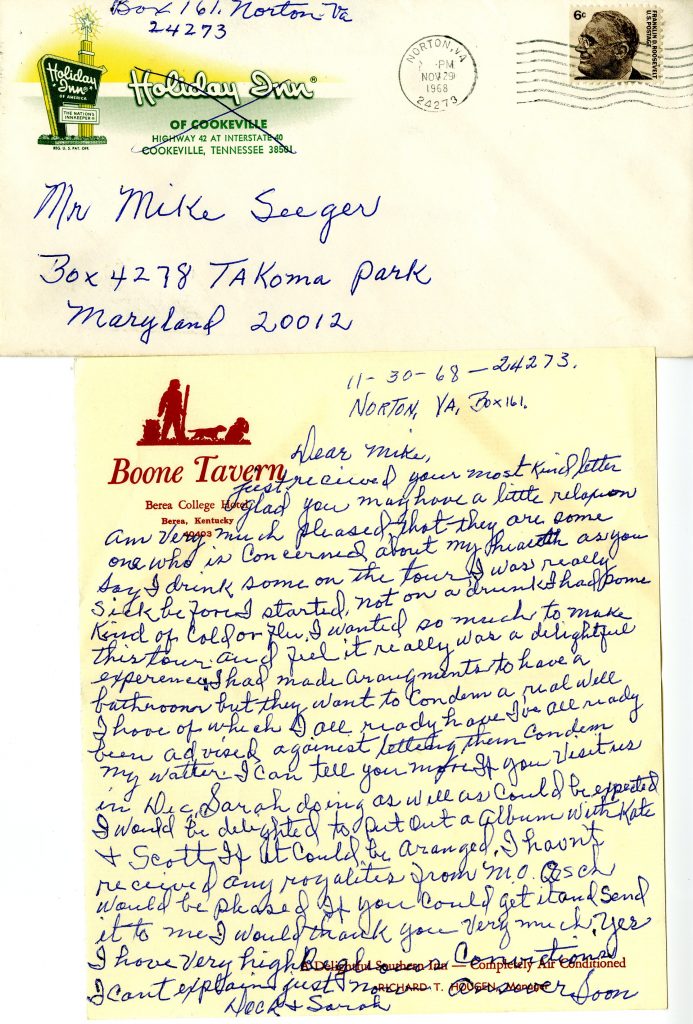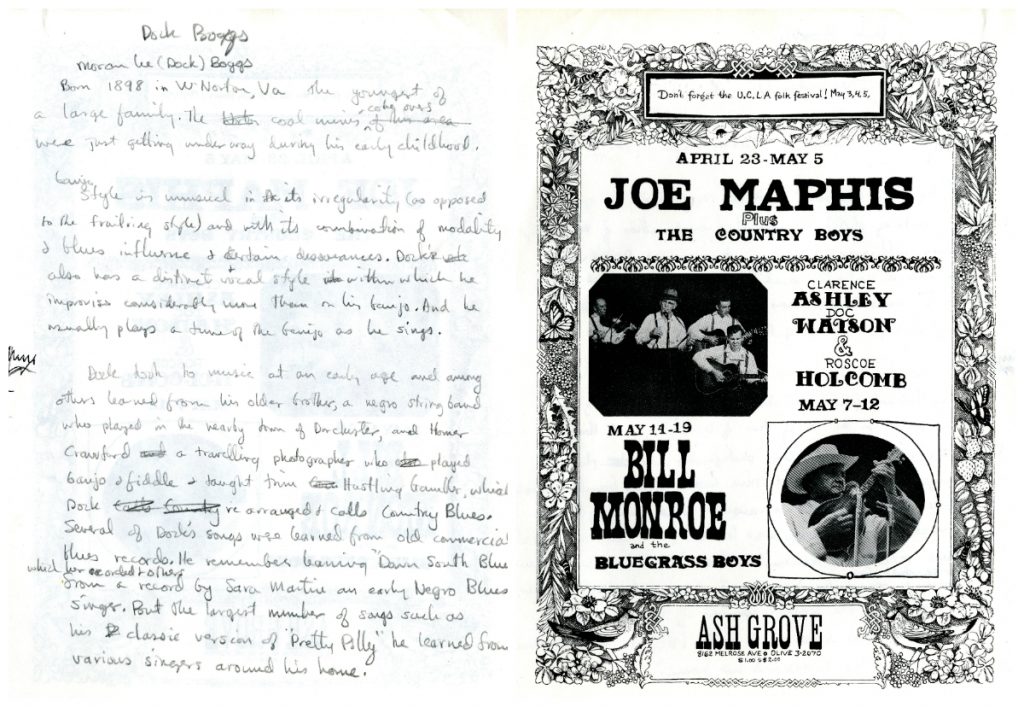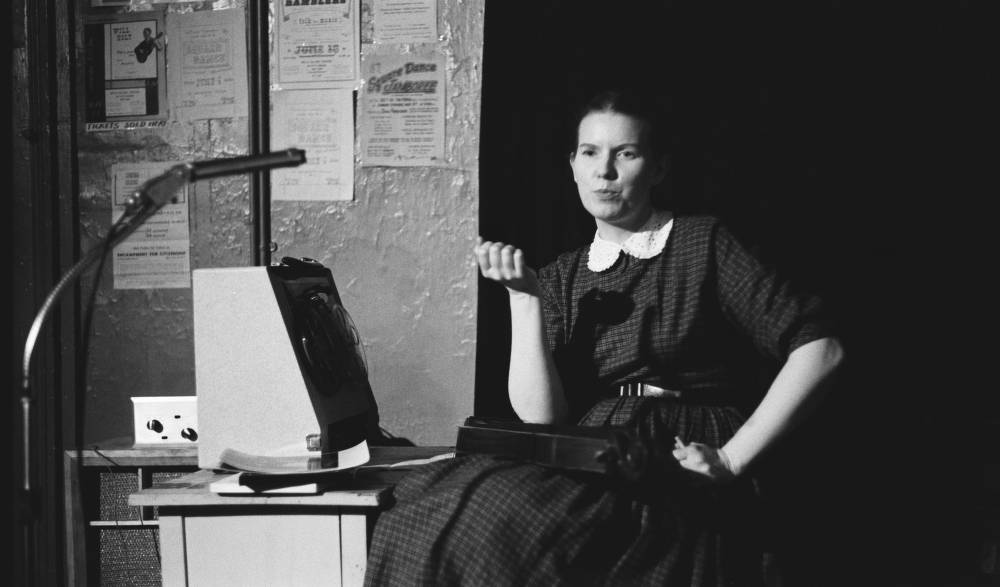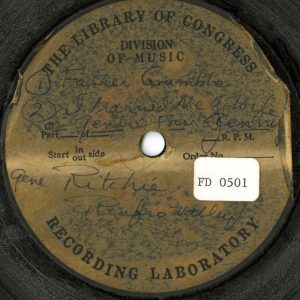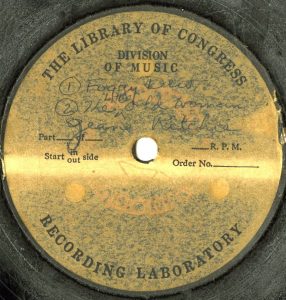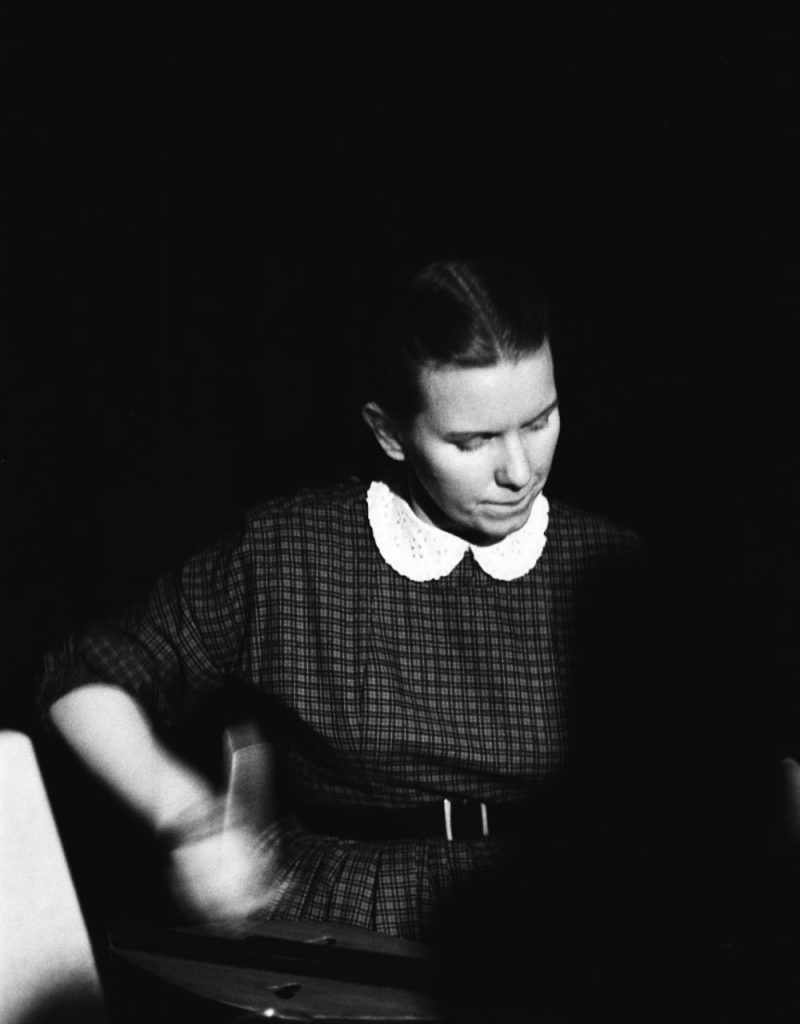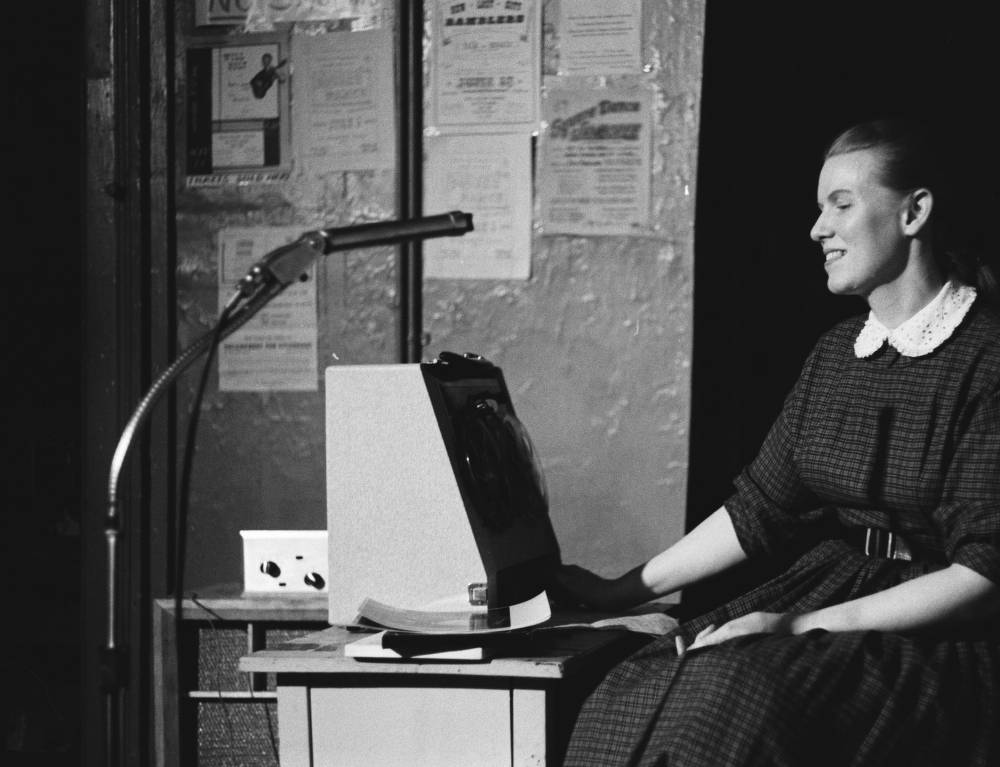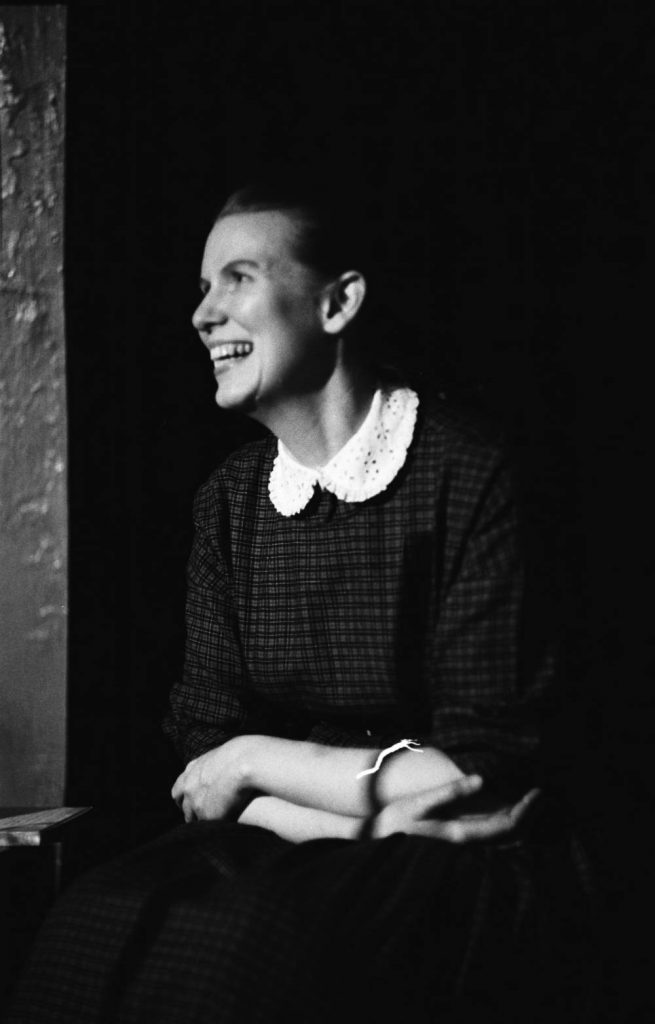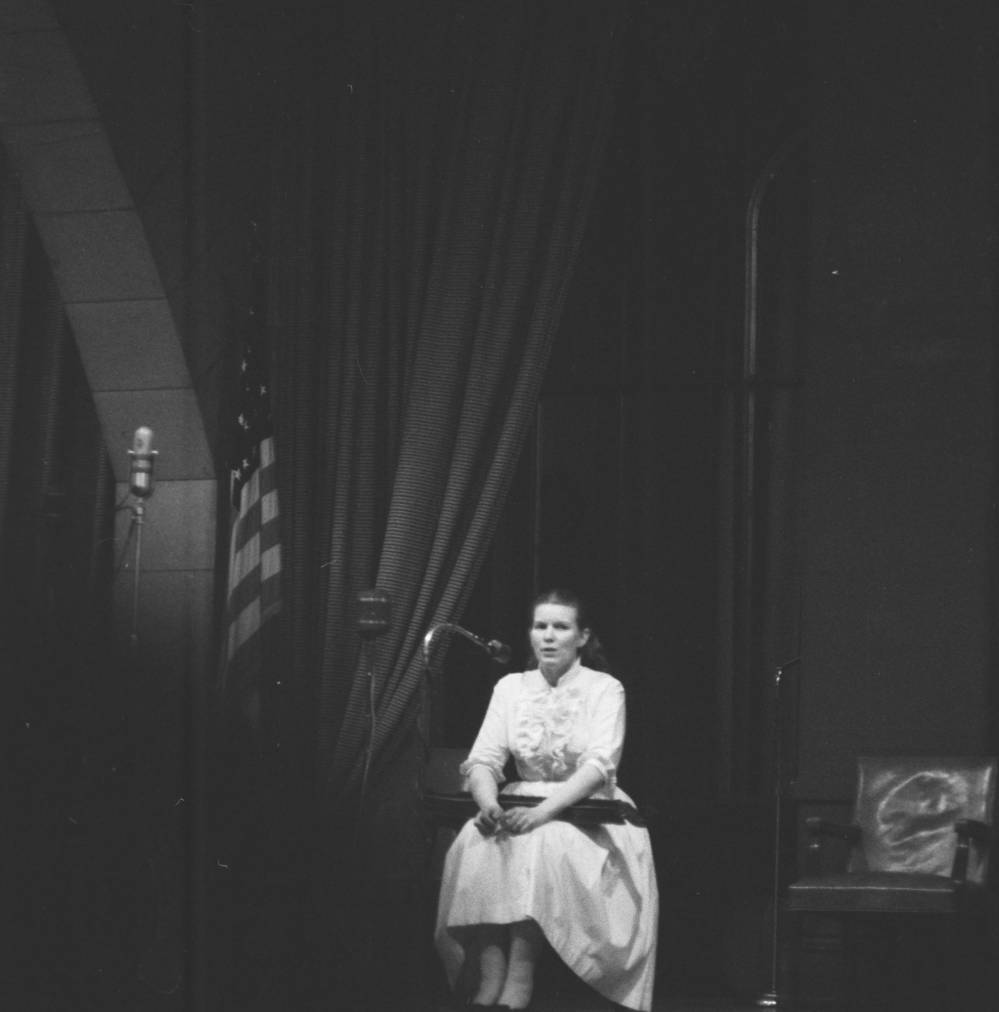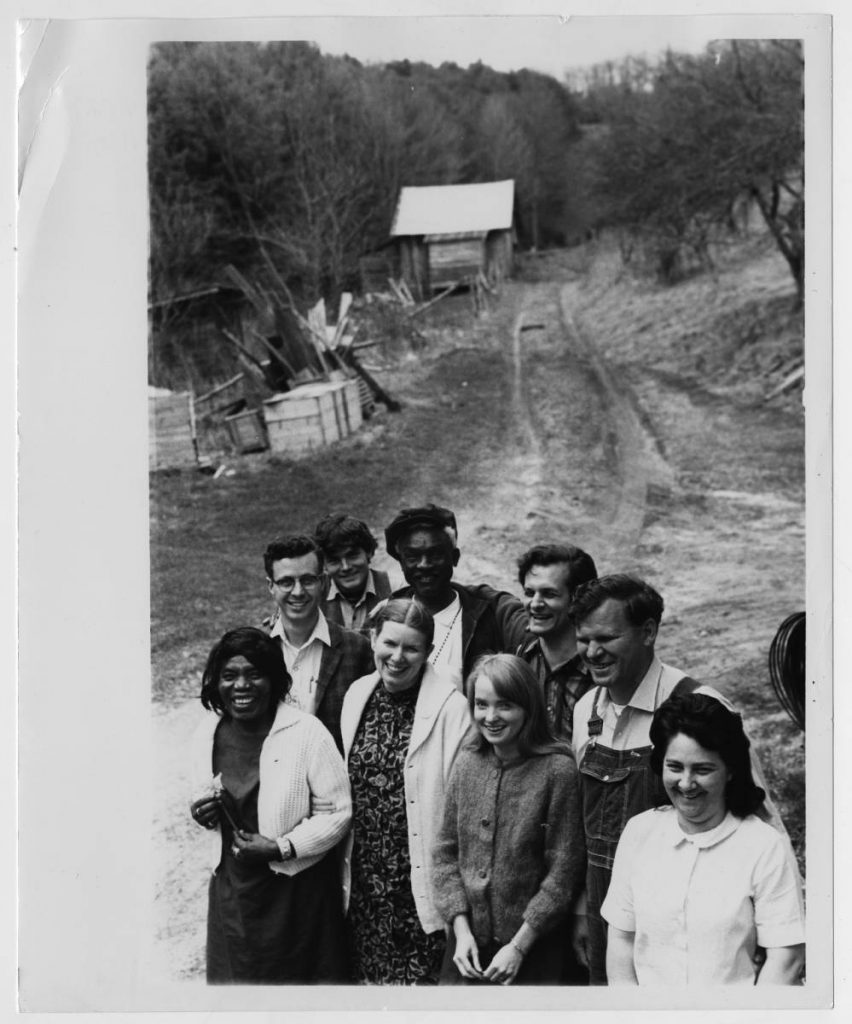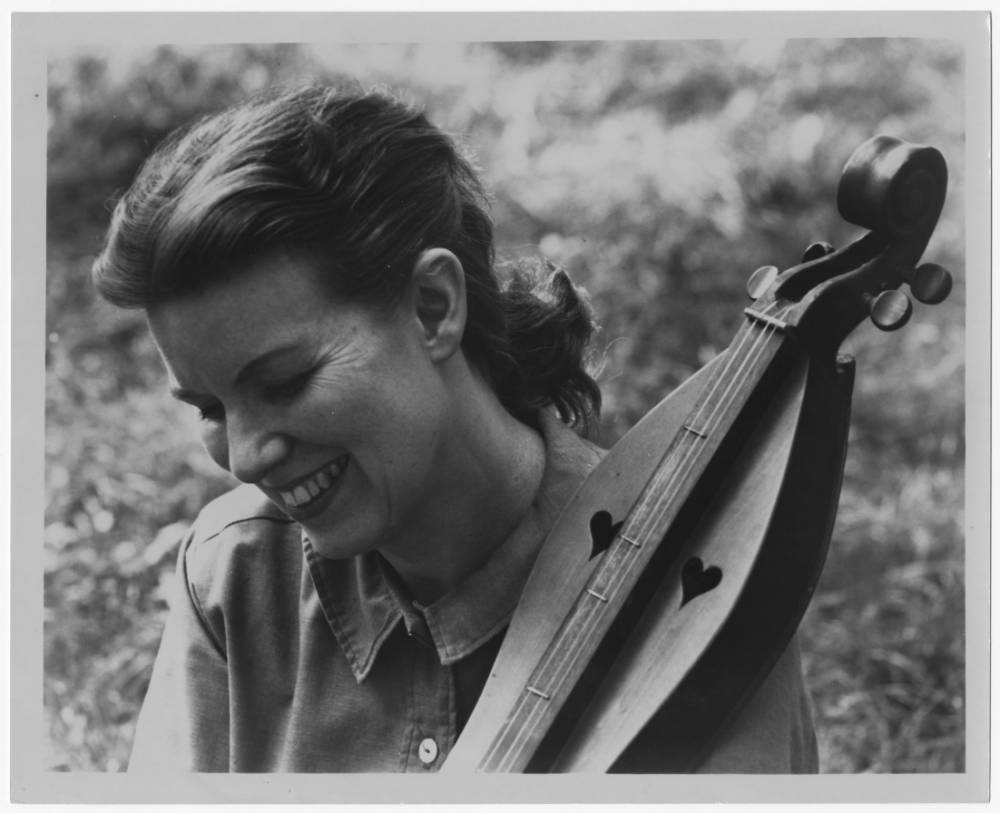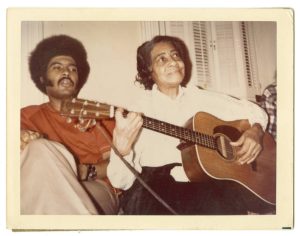
With the recent announcement of Elizabeth Cotten’s induction into the Rock and Roll Hall of Fame, I thought today would be the perfect time to release this resource guide. So much of the writing about Elizabeth Cotten is marred by misogynoir – the combination of sexism and racism. Music writers often underplay Cotten’s musical and technical skill, instead describing her as gentle and humble. Many of these writings also focus on her childhood and then skip to her musical career, avoiding discussion of the first half of her life doing housework for white families. While her style and repertoire has influenced many other musicians, she remains underappreciated and undervalued. There are not enough secondary sources about her life and music, and I hope this blog post can be a starting guide for anyone interested in researching and writing about her.
In addition to this resource, check out the the Southern Folklife Collection’s special event from 2020,”When I’m Gone: Remembering Folk Icon Elizabeth Cotten”, featuring Elizabeth Cotten’s family, Yasmin Williams and Alice Gerrard.
Unless otherwise noted, the following biographical details and quotes interspersed throughout this blogpost come from the album notes from Elizabeth Cotten Vol. 3: When I’m Gone. The quotes are taken from interviews with Elizabeth Cotten conducted by Alice Gerrard and Mike Seeger throughout the 1960s and 1970s. You can read the full album notes here or listen to the original interviews in the Alice Gerrard and Mike Seeger collections linked below.
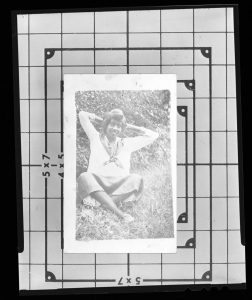
Elizabeth Cotten’s mother, Louisa Price Nevills was from Siler City, North Carolina and came from a farming family but she worked as a midwife and did housework. Cotten recalls that all of her uncles on her mother’s side played fiddle and her mother would sing old songs such as “The Man is Burning” and “Hallelujah T’is Done.” The name Nevills came from the enslavers of Cotten’s father’s family. Her father, George Nevills came from Chatham County, made liquor and worked in an iron mine as a dynamite settler. He died early in Elizabeth Cotten’s life and some of her fondest memories of him include braiding his hair with her sister.
As a child, Elizabeth Cotten (born 1893 in Chapel Hill, N.C.) always loved music and was especially drawn to organ and piano. She recounts a man who lived nearby her childhood home who played guitar:
“He let the children come when he’d have this music, and dance in his yard…That’s where I learned how to dance, waltz and two-step, do the cakewalk, Frisco… buck dance. And I just danced my little head off… My brothers were there and we’d all dance together, my sister, me, and my brother… In the band they had some kind of horns, the drum, and this big, old guitar – double bass thing.”
Since the banjo and guitar were the instruments around, those were the instruments she taught herself to play. She would stay up all night practicing. Cotten went to school until 4th grade and generally liked it but eventually had to start making her own money, earning $0.75 per month which she saved up to buy her own guitar.
After Elizabeth Cotten was baptized at around 14 years old, the church told her she couldn’t play the “worldly songs” she had been playing on guitar. She explains,“I didn’t stop all at once ‘cause I couldn’t. I loved my guitar too good. And then it weren’t too long ‘til I got married and that helped me to stop because then I started housekeeping”. When she was 15, she married Frank Cotten and had her only child at age 16. During this time she still lived with her mother and sister while her husband worked in New York as a chauffeur. She moved between Chapel Hill, New York and D.C. primarily doing housework for white families. When her daughter got married, she divorced Frank. In interviews with Alice Gerrard, she talks about how hard domestic work was:
“I worked awfully hard there because she liked you to wash her floors and things on your knees. And she had plenty of floors for you to wash… had me crawlin’ on my knees savin’ her boards in her house– and the house is there yet. She says, “Elizabeth, you put your detergent in this bucket, [and] this is the bucket of clean water…” and I, fool, did exactly what she said. I would wash the floor, wipe it up with that rag, put that in the bucket, then over here I’d take my clean water and wipe and rinse my cloth in that. And I’d do that from her attic all the way downstairs…”
Elizabeth Cotten didn’t start working as a musician until the late 1950s, when she was in her sixties. While continuing to do house work, she recorded her first album in 1957 with the help of Mike Seeger. There are many retellings of how Elizabeth Cotten met the Seeger family which you can read about in other publications. By the time she was in her seventies, she had a solo career, performing at the top folk venues and folk festivals. She became most well known for her composition “Freight Train”, which she wrote as a tween in Chapel Hill. Cotten didn’t receive any royalties or credit for the song until a lawsuit that still only gave her one third credit (you can hear her family talk about this in an interview from the McCabe Guitar Shop Collection). When she was in her eighties, she was still working as a musician and won a Grammy for Best Ethnic and Traditional Recording in 1984 at age 91. That same year she was named as a National Endowment for the Arts National Heritage Fellow. She is a 2022 inductee into the Rock and Roll Hall of Fame.
“I love to feel independent, I do… I feel good. I’m proud of myself. I didn’t know I could do all these things that I’m starting and the more I think about it the more I think I can do it.”
Archival collections with significant amounts of materials related to Elizabeth Cotten:
Mike Seeger Collection, 1923-2013 (20009)
Given the close connection with the Seeger family, the Mike Seeger collection holds many recordings of Elizabeth Cotten playing in both formal and informal settings, as well as a handful of photos. Recordings include live shows, practice tapes, and interviews. The Smithsonian Folkways LPs and CDs also come from this collection.
Two clips from SFC Audio Cassette FS-20009/12936:
St. Louis Blues, Elizabeth Cotten with Mary Jefferson singing. January, 1979.
Rueben’s Train, Elizabeth Cotten with unidentified singer. January, 1979.
Alice Gerrard Collection, circa 1872-2009 (20006)
Alice Gerrard considered Elizabeth Cotten a friend in addition to having toured with her and interviewed her. Gerrard’s collection includes recorded interviews, informal recorded music and several photographs. The conversational interviews between Cotten and Gerrard are particularly moving, talking about childbirth, domestic house work and dealing with racist encounters.
“You could watch a person the way the act, and that makes you uncomfortable. Sometimes the act might not be towards you, but if you’re the only one there you watch their actions. I’ve been in many a place and they ask you to eat, for an instance. And the way they ask and the way they do you say, “no thank you.” You might be hungry… It’s different with you. You’re white. And I’m Black. That gives me a different feeling. That makes me kind of watch them where you wouldn’t, see? It makes you watch people and know what they say and see if you think they mean it or not, you know? I know I’m Black, see, and the old way back times, the way white people treated Negroes… I heard my mama talk about it… And I think that growed up in the Black people by hearin’ about it through their parents or maybe their godmothers or their godfathers, whoever raise them. And it makes them have that little drawback kind of feelin’ that maybe you wouldn’t think about, see? And that makes me sometimes sit – and I say nothin’, and they don’t know what I’m thinkin’. I’m thinkin’ deep… and I’m not sayin’ anything. And listening to what they say. And you can near about know which way to go – know whether to run or sit…” (6)
McCabe’s Guitar Shop Collection, 1967-2013 (20511)
McCabe’s Guitar Shop has hosted many legendary musicians, including Elizabeth Cotten. In this collection, you can watch a 7-part interview with Cotten and her family in 1984 conducted by Nancy Covey. The interview goes into Peter Paul and Mary taking credit for Elizabeth Cotten’s song “Freight Train.” You can also listen to recordings of Elizabeth Cotten performing at McCabe’s Guitar Shop throughout the 1970s and 1980s.
North Carolina Folklore Broadcast Collection, 1976 (20105)
This collection contains several recordings from the North Carolina Folklife Festival (pre-curser to the Festival of the Eno) that Elizabeth Cotten performed at in 1976.
Stefan Grossman Collection (20578)
Although this is a collection level finding aid, the collection does contain multiple items related to Elizabeth Cotten including videos of multiple performances by Elizabeth Cotten solo, with Mike Seeger and a guitar workshop with Elizabeth Cotten and John Fahey. Published versions of these are available through the UNC libraries (listed below).
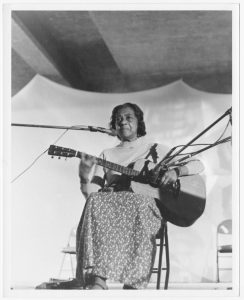
Archival collections with more limited items related to Elizabeth Cotten:
Highlander Research & Education Center’s Audiovisual materials, 1937-2008 (20361)
The Highlander Research & Education Center comes with a long history of civil rights activism and education. This collection includes one video of Elizabeth Cotten performing.
Pete Kuykendall Collection (20546)
Through the Kuykendall Collection finding aid, you watch Elizabeth Cotten perform on Pete Seeger’s TV show “Rainbow Quest” from the 1960s. This video is available for streaming on the UNC campus. A published version is available in the video resources below. Some clips are also available on YouTube.
Sing Out! Collection, 1937-2014 (20550)
This collection includes a recording of a gospel workshop with Elizabeth Cotten, Janette Carter, Lily May Ledford and Ola Belle Reed in 1980.
Paul Brown Collection, 1950-1999 (20382)
Paul Brown’s collection includes the “Libba Cotten Special” episode of his NPR show “Across the Blue Ridge” with recordings and interviews about her life and music.
Dick Waterman Collection, 1960-2003 (20533)
This collection contains several photographs of Elizabeth Cotten at festivals and venues suchs as Club 47 in Cambridge, Massachusetts and the Newport Folk Festival.
Bill C. Malone Collection, 1950s-2016 (20315)
Music historian Bill C. Malone’s collection includes one recording from the Oklahoma State University Festival in 1972.
Gary Kenton Collection, 1971-1989 (20321)
This collection includes an audio recording of an undated telephone interview with Elizabeth Cotten by music journalist Gary Kenton.
Alan Kanter Collection, 1972-2009 (20549)
Audio engineer Alan Kanter’s collection includes a recording of Elizabeth Cotten at the San Diego Folk Festival in 1977.
North Carolina Department of Cultural Resources Films, 1951- 1988 (20448)
This collection includes a 30-minute documentary titled Got to tell it: A tribute to Mahalia Jackson from 1983 about Mahalia Jackson and Elizabeth Cotten directed by Studs Terkel.
Greenhill Family/FLi Artists/ Folklore Productions Collection, 1947- 2014 (20542) )
This collection includes some photographs of Elizabeth Cotten and a recording of a live performance in 1978.
Southern Folk Cultural Revival Project, 1965-1989 (20004)
The SFCRP organized tours throughout the south with both Black and white musicians. Elizabeth Cotten participated in some of these tours and this collection includes her artist file with correspondences and publicity about her involvement with the project.
DK Wilgus Papers, 1883-1996 (20003)
This collection includes an artist file containing clippings and other items related to Elizabeth Cotten collected by folklorist DK Wilgus.
“You know the tune and you just learn it. Just keep the tune in your mind and just keep on workin’ with it ‘til you get something. The way I do, I play it to my own sound, the way I think it sounds. If I’m playing a song and if I don’t quite know it, you could finish it off with some kind of sound. I just do it according to my sound… you just get a sound. You just put the sounds together and what sounds alright you just go on with it. And all of them little things you heard me playin’, that’s the way I got it. I don’t know nothing about no notes, I can’t read music. You just get a song and know it and just keep fooling around with it ‘til you get it to sound like you want it to sound. And whether it’s right or wrong I just go on with it if it sounds to suit me… I tried hard to play, I’m telling you. I worked for what I’ve got, I really did work for it.”
Archival collections and items without finding aids:
National Public Radio Collection, 1975-1984
This collection includes interviews for profiles about various folk musicians, including Elizabeth Cotten.
NC folklife festival and Alan Jabbour Folklife Section Collections (1974, 1976, 1978)
These recordings are from the NC folklife festivals in 1974, 1976, and 1978 that Elizabeth Cotten performed at.
Folklife festival 1974:
https://catalog.lib.unc.edu/catalog/UNCb2454337 https://catalog.lib.unc.edu/catalog/UNCb2454111
Folklife festival 1976:
https://catalog.lib.unc.edu/catalog/UNCb2454083
Folklife festival 1978 :
https://catalog.lib.unc.edu/catalog/UNCb2454121 https://catalog.lib.unc.edu/catalog/UNCb2454295
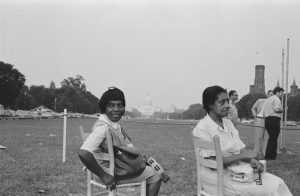
Request copies at Wilson Library
Wilson Library FAQ page
Commercial video recordings in the library catalog:
“Homemade American music.” Aginsky, Yasha, Carrie Aginsky, Mike Seeger, Alice Gerrard, Tommy Jarrell, Lily M. Ledford, Roscoe Holcomb, Elizabeth Cotten, Sonny Terry, Dewey Balfa, Dopsie Rockin’, Allie Young, Nathan Abshire, Tony Balfa, Raymond E. François, Dennis McGee, Wallace Read, Canray Fontenot, Leopold François, and Robert Jardell. Four American Roots Music Films. Sparta, N.J: Vestapol Productions, 2007.
16mm film print: Folkstreams.net Collection (Film F-20384/74)
Streaming: https://www.folkstreams.net/films/homemade-american-music
Me and Stella. Directed by Geri Ashur. Place of publication not identified: Phoenix Films, 1977.
Commerical audio recordings in the library catalog:
Online version: (https://catalog.lib.unc.edu/catalog/UNCb6648585)
Online version: (https://catalog.lib.unc.edu/catalog/UNCb6647067)
Online version: (https://catalog.lib.unc.edu/catalog/UNCb6648426)
Cotten, Elizabeth. Live. Recorded in 1983. Arhoolie Records, vinyl LP.
Online version. https://catalog.lib.unc.edu/catalog/UNCb6128401
Other repositories with related materials:
American Folklife Center at the Library of Congress
Ralph Rinzler Collection at the Smithsonian
Tatiana Hargreaves is a first year graduate student at UNC’s School of Information and Library Science Master of Science in Library Science program. She is a lecturer of bluegrass fiddle in the music department at UNC and performs internationally with banjo player Allison de Groot. She received her BA in ethnomusicology and music performance from Hampshire College in 2017.

